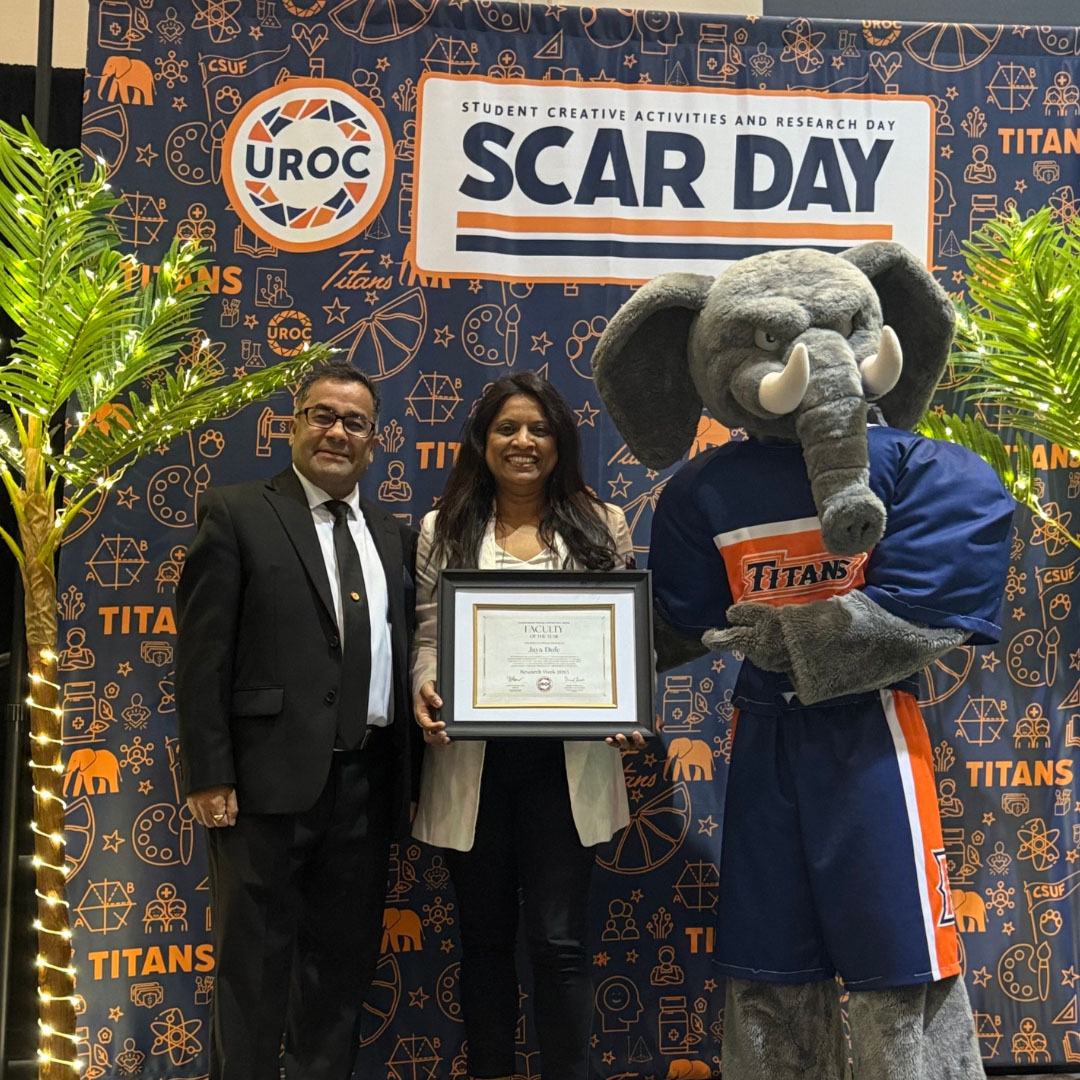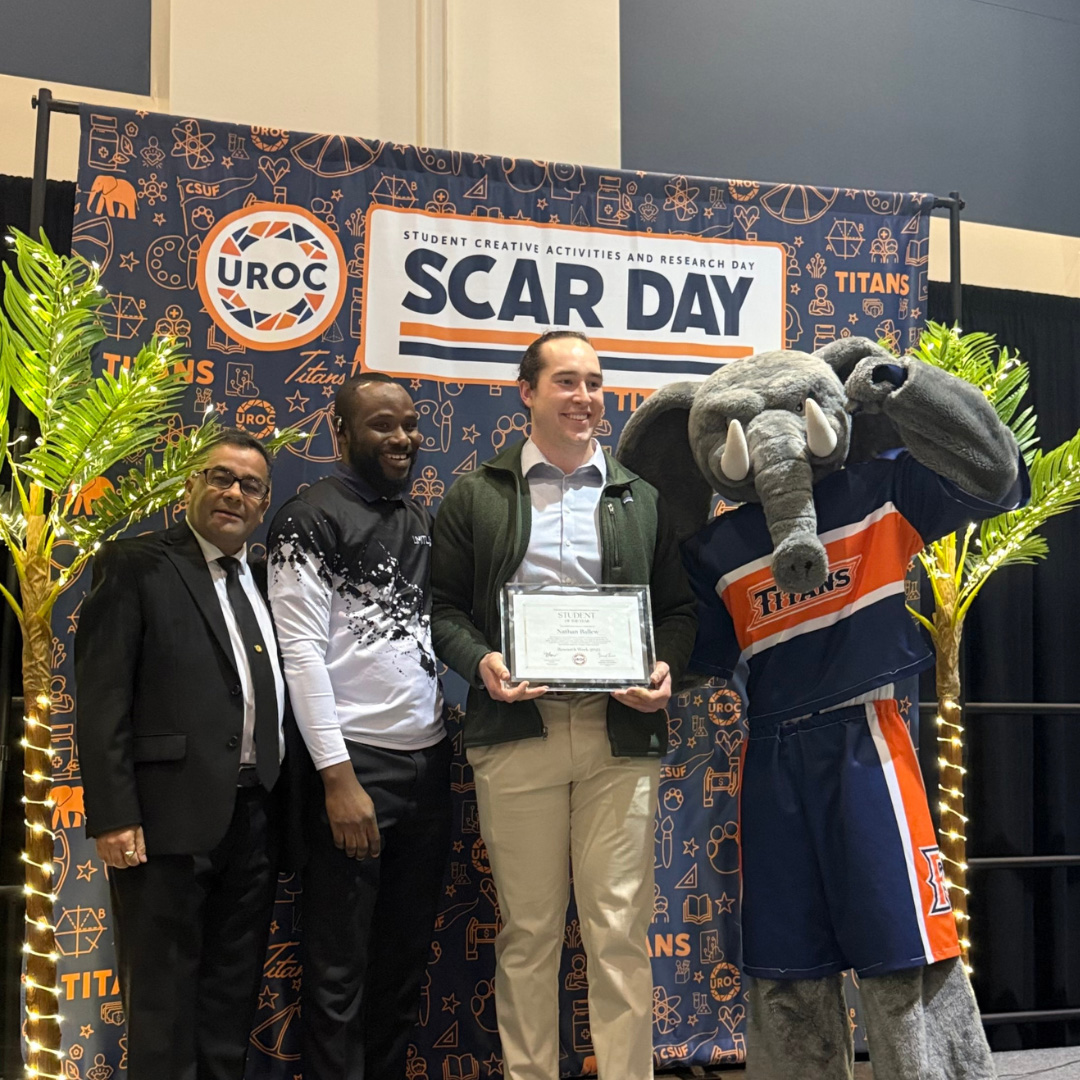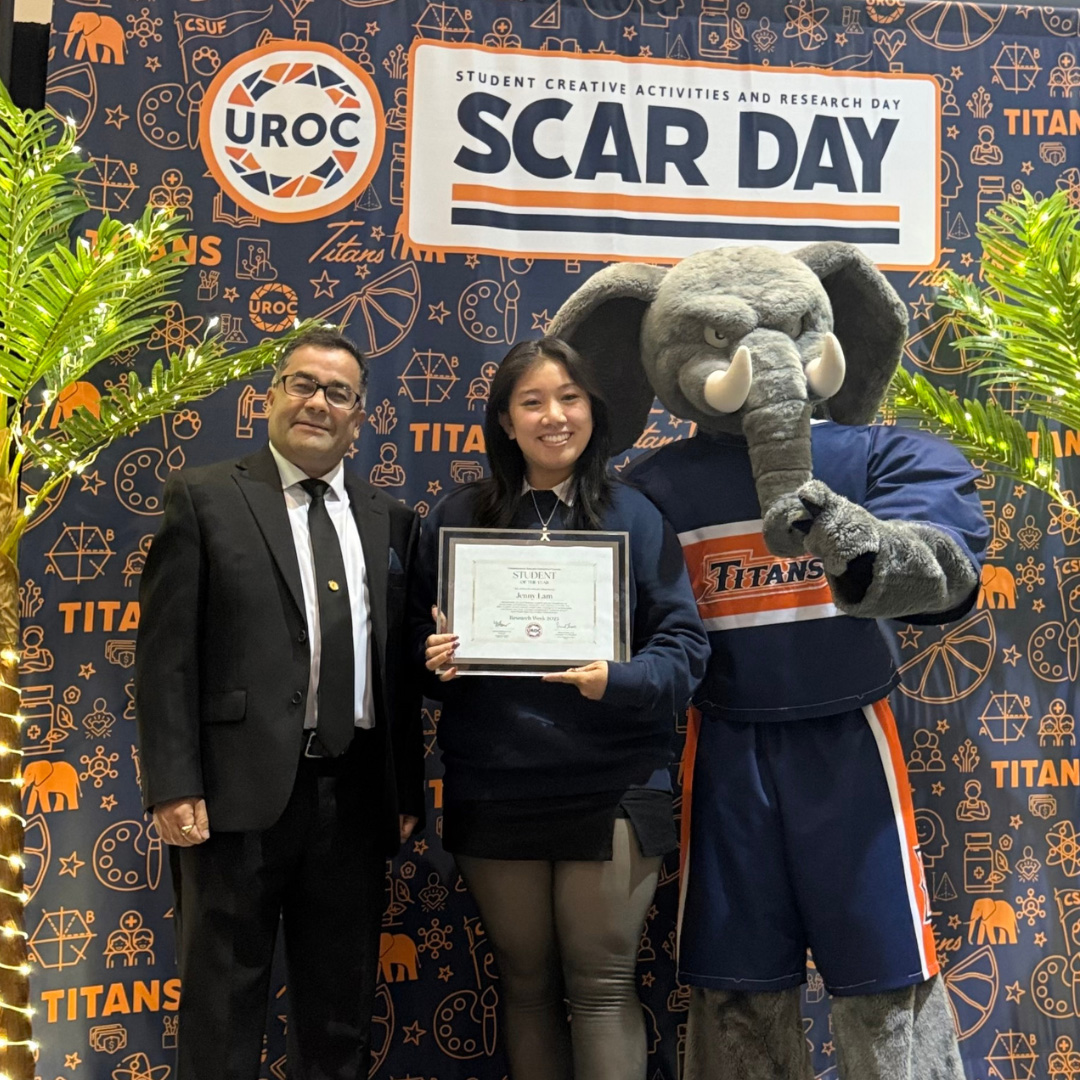Mentor and Student Awards
Overview
Mentoring is life-changing. It is a fundamental determinant of success in all fields and the primary driver of UROC’s mission. These awards recognize outstanding faculty mentors and student mentees demonstrating a longstanding commitment to extracurricular research, and scholarly and creative activities. The UROC Mentor and Student Awards honor those who contribute to an engaging, supportive, inclusive academic environment through their faculty mentorship of students or student participation.
Award Categories
- Faculty Mentoring Undergraduate and/or Graduate Students
- Undergraduate Student of the Year
- Graduate Student of the Year
Congratulations to Our 2025 Awardees
UROC Faculty Mentor of the Year

Joye Dofe, Ph.D.
Associate Professor of Engineering and Computer Science
Undergraduate Student of the Year

Nathan Ballows, Undergraduate
College of Health and Human Development
Graduate Student of the Year

Jenny Lam, Graduate Student
College of Humanities and Social Sciences
2025 Mentor and Student Awards Information:
- Nominations should be emailed to UROC at UROC@fullerton.edu no later than March 21, 2025 at 11:59pm.
- Notification and Award Presentation: Award recipients will be notified by early April.
- The award presentation ceremony will be held during the Research Week’s SCAR Day on April 18, 2025.
Review Criteria
Criteria for the Faculty Mentor Award
-
Goal Setting:
The mentor explores mentees’ talents and interests to assist them in
defining and attaining their goals. - Support: The mentor encourages growth and achievement by providing a supportive environment where challenges, successes, and failures can be openly shared and examined.
- Information and Advice : The mentor carves out regular time to share knowledge, experiences, and wisdom to guide mentees in reaching their academic, professional, and/or personal goals.
- Feedback : The mentor makes themselves available to provide regular and constructive feedback on mentees' work when requested.
- Professional Exposure: Mentor involves mentees in publications, grants, presentations, expositions, or professional/leadership opportunities and readily shares knowledge of other such opportunities and mentees.
- Networking: Mentor provides valuable access and opportunities by facilitating academic, professional, and personal contacts.
- Inclusion: Mentor creates access by sharing knowledge of the discipline's political landscape and power dynamics, as well as effective strategies for navigating those structures. Working with mentees from underrepresented, first-generation, or marginalized groups within the discipline is a priority, with attention paid to developing skills and support networks to overcome institutional barriers they may face.
- Role Modeling: Mentor maintains high standards for excellence within their discipline and as an engaged University community member. Engaging in respectful relationships with colleagues and students. Acknowledging power differentials in professional relationships and behaving with integrity align with CSUF’s core values. Encouraging mentees to adopt similar principles of professional behavior.
Criteria for Student Awards
- Goal Setting : Students take the initiative to set specific goals and define ways to attain them.
- Support: Students accept new challenges and openly share and examine successes and failures.
- Information and Advice : Students strive to meet regularly to share their experiences and actively seek guidance in reaching their academic, professional, and/or personal goals.
- Feedback: Students embrace constructive feedback and understand it will help them improve.
- Professional Exposure : Students seek out and participate in publications, grants, presentations, expositions, or professional/leadership opportunities.
- Networking: Students participate in networking opportunities and actively develop academic, professional, and personal contacts.
- Inclusion: Students adopt ways to engage other students, including underrepresented, first-generation, or marginalized groups, into their discipline.
- Role Modeling: Students maintain high standards for excellence within their discipline and as engaged University community members. Engaging in respectful relationships with fellow students and faculty and behaving with integrity, per CSUF’s Code of Conduct.
Nomination Package
The nomination packages must include the following:
- Primary and secondary nomination narratives of up to 500 words, including nominators' relationship to the nominee.
Nominations should summarize the nominee's impact on mentoring with clear examples of the positive outcomes on students. If the nominator(s) is a mentee, a narrative of how the mentor influenced their career(s) should be included.

